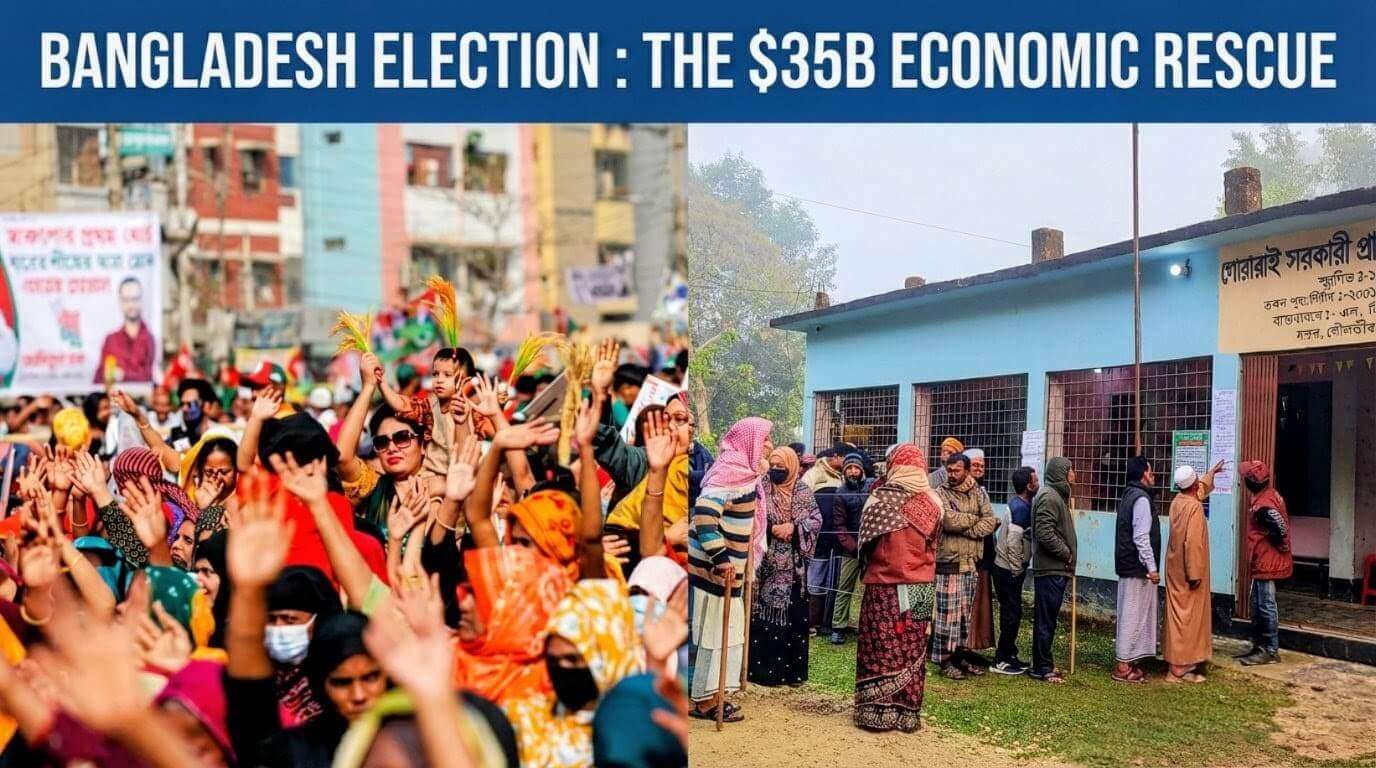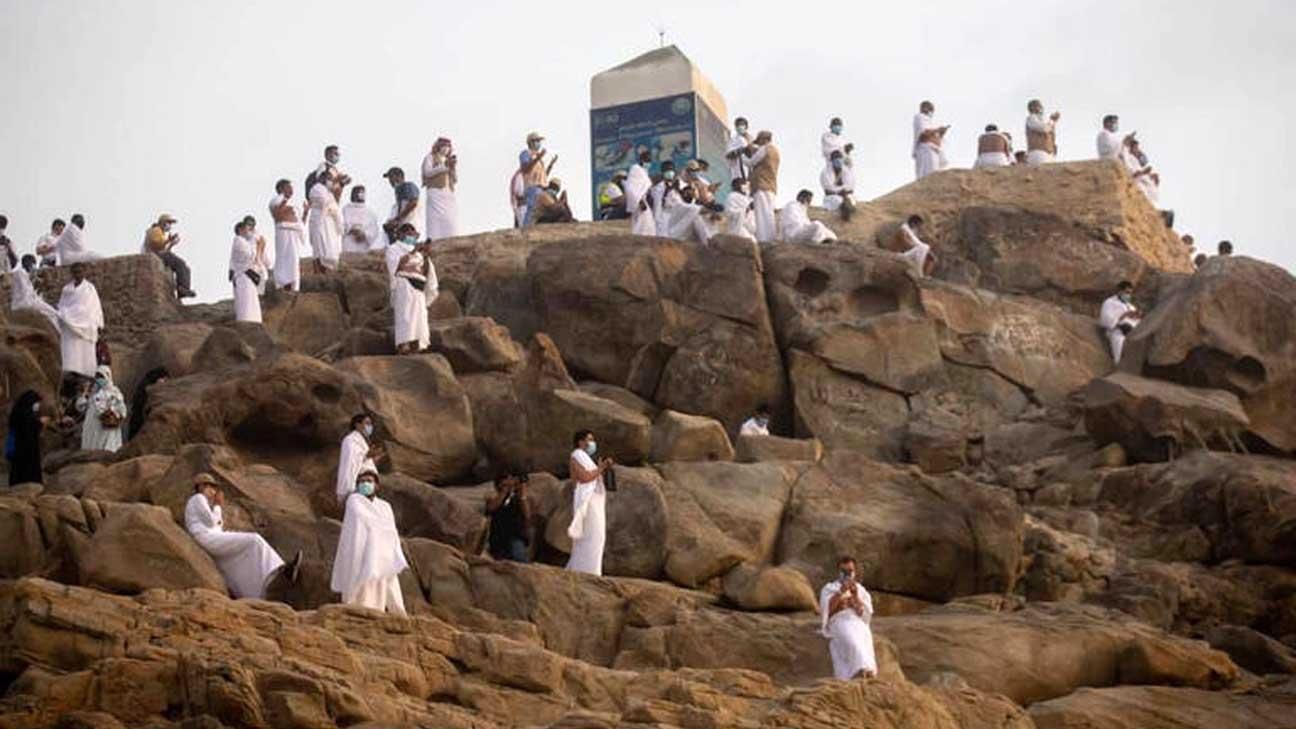Over two million Muslim pilgrims from 180 nations have converged on the holy city of Mecca, as Hajj 2025 officially commenced on Wednesday, June 4. This year's pilgrimage, considered the world’s largest annual gathering, is set to be profoundly transformed by Saudi Arabia's integration of cutting-edge artificial intelligence, aiming to foster unprecedented clarity, access, and spiritual depth for every participant.
Authorities, including The General Authority for the Care of the Two Holy Mosques (Kaaba in Mecca and Prophet Mohammed's Mosque in Medina), have placed advanced AI translation tools at the heart of this monumental event. This technological leap ensures that spiritual guidance and vital information are universally accessible, bridging language barriers for pilgrims from diverse backgrounds.
Arafat Sermon Goes Global in 35 Languages
A pivotal moment of the Hajj will showcase the power of this innovation during the Arafat sermon on Thursday, June 5. Tens of thousands of pilgrims will assemble on Mount Arafat, where Islam’s last prophet, Mohammed, is believed to have delivered his final sermon. For hours, they will engage in prayers and Quran recitals, staying until evening in one of Hajj's most important rituals.
This year, for the first time, the Arafat sermon will be translated and transmitted live in real-time into an astonishing 35 languages. This monumental effort allows millions globally, and every pilgrim on the ground, to hear the sermon’s profound message of unity, compassion, and faith directly in their native tongue. Enabled by advanced AI systems, this global broadcast exemplifies how technology and tradition can harmonise to elevate the spiritual experience.
Smart Hajj: Bridging Language and Heart
Beyond the Arafat sermon, initiatives like ‘Smart Hajj’ and the ‘In their languages’ programme have embedded multilingual support into nearly every touchpoint of the pilgrimage.
Pilgrims can navigate their sacred journey using the multi-language Nusuk App. Its AI-powered Personal Assistant offers real-time voice translation, allowing users to seamlessly ask for help, understand procedures, and communicate with fellow worshippers and service teams. For direct religious guidance, the voice-activated Manara robot offers answers to common questions in 11 languages, delivered with clarity and cultural sensitivity. On the ground, field teams are equipped with AI-powered devices that understand both speech and images, enabling rapid and precise communication in each pilgrim’s native language.
"These tools don’t just make things easier—they help every pilgrim feel understood, included, and supported in real time,” a statement from the authorities affirmed. Translated copies of the Quran are also widely distributed across the Grand Mosque in Mecca, ensuring personal reflection on sacred verses is universally accessible.
Life-Saving Communication
In urgent situations, such as medical emergencies or crowd management, AI-powered translation is proving to be critical. Instant, accurate communication across dozens of languages is essential to maintaining safety and order during one of the world’s most densely populated religious gatherings, potentially proving life-saving.
Hajj Obligation and Dates
The Hajj is one of the five pillars of Islam, a mandatory pilgrimage for all Muslims who are physically and financially able to undertake the journey to Mecca at least once in their lifetime. The pilgrimage is held annually between the 8th and 13th days of Zil-Hajj, the 12th and final month of the Islamic lunar calendar. This year, the corresponding Gregorian dates for Hajj 2025 in Saudi Arabia are between June 4 and June 8. Many pilgrims also extend their spiritual journey by visiting Medina, home to the Prophet Muhammad’s Mosque and the second-holiest site in Islam.
India's Hajj Contingent and Safety Measures
India's quota for Hajj in 2025 stands at 1.75 lakh pilgrims. The Union Ministry of Minority Affairs, through the Hajj Committee of India, manages arrangements for 1,22,518 pilgrims, with the remaining 50,000+ allotted to Private Tour Operators.
With over 1.8 million people performing Hajj amidst the heat and crowds, Saudi Arabia is deploying significant technological and logistical measures to prevent tragedies like last year's deadly heatwave. Drones will monitor crowds and deliver medicine, while misting systems, shaded walkways, and hundreds of new water stations have been added. The Great Mosque will also be cooled by the world’s largest air conditioning system, maintaining temperatures between 22 and 24 degrees Celsius (72-75 Fahrenheit). Authorities have also cracked down on unregistered pilgrims, turning away over 260,000 so far, enforcing the viral slogan: "No Hajj without a permit."
"What was once a logistical challenge is now an opportunity to deepen spiritual connection. In bridging languages, the Kingdom is also bridging hearts. Through thoughtful innovation, Hajj is not only more accessible—it’s more connected, more human, and more spiritually alive than ever before,” the authorities stated.
For Muslims Unable to Perform Hajj:
For various reasons, many Muslims around the world may not be able to undertake the Hajj pilgrimage. However, Islam offers numerous other pathways for spiritual growth and earning rewards, especially during the sacred days of Hajj:
- Fasting: Fasting on the Day of Arafat (9th of Zil-Hajj) is highly recommended and is believed to atone for sins of the previous and coming year.
- Increased Prayers and Supplications (Du'a): Engaging in extra prayers, including Nafal (voluntary) prayers, and making earnest supplications to Allah are greatly encouraged.
- Recitation of the Quran: Dedicating time to read, reflect upon, and understand the Holy Quran.
- Charity (Sadaqah): Giving to those in need, especially during these blessed days, is a highly virtuous act.
- Dhikr (Remembrance of Allah): Engaging in abundant remembrance of Allah through phrases like "Subhanallah" (Glory be to Allah), "Alhamdulillah" (Praise be to Allah), "Allahu Akbar" (Allah is the Greatest), and "La ilaha illallah" (There is no god but Allah).
- Seeking Knowledge: Spending time learning about Islam and its teachings.
- Repentance: Sincere repentance for sins and seeking Allah's forgiveness.
While the Hajj is a unique spiritual journey, these alternative acts of worship allow Muslims to connect deeply with their faith and participate in the blessings of these sacred days from wherever they are in the world.








.svg)


